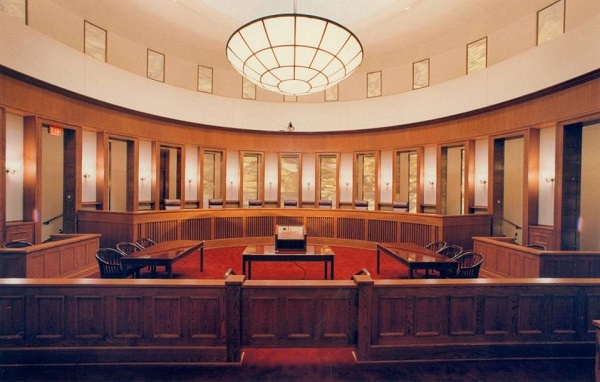The Government is committed to improving access to justice by poor and marginalized Kenyans amidst new challenges generated by the Covid-19 pandemic through increasing uptake of free legal services offered by the state owned National Legal Aid Service (NLAS).
Rift Valley NLAS Regional Coordinator Ms. Faith Koila stated that access to quality legal representation was not a privilege reserved for the rich and the mighty but a right enshrined in the Constitution as well as international treaties ratified by Kenya, to be enjoyed by all citizens.
Ms. Koila who is also Senior State Counsel spoke during a legal awareness week organized by the Law Society of Kenya (LSK) in partnership with National Legal Aid Services (NLAS) at the Nakuru law courts.
During the event themed, Sovereignty of the People and Access to Justice, the Senior State Counsel observed that despite enactment of legislation and development of various policies, access to justice remains elusive for many Kenyans particularly the vulnerable and the marginalized.
“First-rate legal representation in Kenya, as it is in other parts of the world, is way beyond the reach of many and occasionally unattainable. It is one of those needs that the vulnerable cannot afford even when faced with litigations before courts of law.
It is against this backdrop that the Nation Legal Aid Service (NLAS) was established by statute to provide free legal advice, representation and assistance for vulnerable groups. This is in a bid to facilitate access to justice to those who wish to claim their rights but cannot afford legal representation,” Ms. Koila pointed out.
In pursuit of the constitutional guarantee of the right to access to justice, Parliament enacted the Legal Aid Act 2016 to establish the legal and institutional framework for the provision of legal aid in Kenya. The Act established the National Legal Aid Service (NLAS) as a body corporate, succeeding the National Legal Aid and Awareness Programme (NALEAP).
The mandate of the NLAS is to establish and administer a national legal aid scheme that is affordable, accessible, sustainable, credible and accountable in ensuring access to justice for all.
The Senior State Counsel explained that under international law, governments are mandated to guarantee access to courts or alternative dispute resolutions to citizens whose rights have been violated or infringed.
“All accused persons have a right to be represented and this is clearly captured by Article 52 of the Supreme Law. A judgment cannot be deemed to be fair when one party has better legal representation than the other.
A judgment can only be fair if all parties have sufficient representation or access to legal aid if they are poor, vulnerable or marginalized,” stated Ms. Koila.
The right to legal representation, she noted, shouldn’t just be limited to persons accused of a crime but also to persons or communities faced with evictions, communal or domestic violence or who may need to sue the government for failure to uphold their constitutional rights.
Ms. Koila said there was a need for all stakeholders in the justice systems to come up with strategies on how to motivate lawyers offering free legal services during crisis situations as the Constitution emphasizes access to justice which is unhindered by costs.
During last year’s legal awareness week in Nakuru a mere 56 people had sought free legal services while this year the number had shot up to an impressive 150 persons. She attributed last year’s dismal response to the Covid 19 containment measures.
The Senior State Counsel added, “Most of those who sought free legal advice were having land cases and property succession disputes. We also have attended to a number of individuals with pending cases of child support and custody before law courts.”
Ms Koila noted that NLAS was also giving priority to the elderly, persons living with disabilities and people living with HIV/AIDS.
The State Counsel indicated that Sustainable Development Goal 16 underscores the importance of access to justice.
By Anne Mwale and David Opingo


